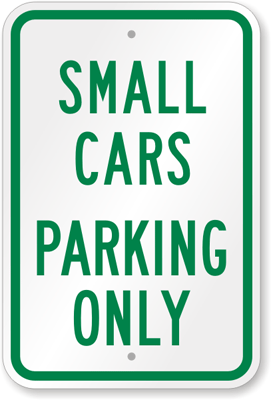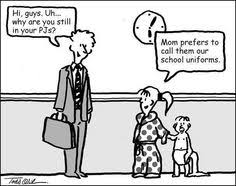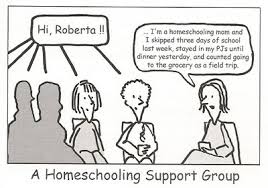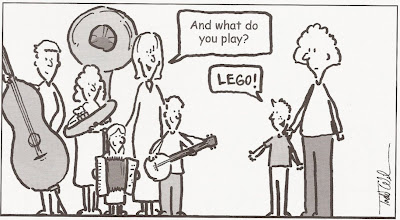|
Definition as a rhetorical strategy: Homeschooling Example
|
1. Read “The Avatar Age” (pages 185-189 in WOW)
2. *final draft of Essay I (with all required components) due Tuesday
|
Definition as a Rhetorical Strategy: Essay II
Formal Definitions
A formal definition is based upon a concise, logical pattern that includes as much information as it can within a minimum amount of space. The primary reason to include definitions in your writing is to avoid misunderstanding with your audience. A formal definition consists of three parts.
- The term (word or phrase) to be defined
- The class of object or concept to which the term belongs.
- The differentiating characteristics that distinguish it from all others of its class
For example:
- Water (term) is a liquid (class) made up of molecules of hydrogen and oxygen in the ratio of 2 to 1 (differentiating characteristics).
- Comic books (term) are sequential and narrative publications (class) consisting of illustrations, captions, dialogue balloons, and often focus on super-powered heroes (differentiating characteristics).
- Astronomy (term) is a branch of scientific study (class) primarily concerned with celestial objects inside and outside of the earth's atmosphere (differentiating characteristics).
These types of definitions are concrete and widely accepted. For example, most people would agree with this definition of chair:
a seat, especially for one person, usually having four legs for support and a rest for the back and often having rests for the arms.
Or this definition of car:
a: a vehicle moving on wheels: as archaic : carriage, chariot
b: a vehicle designed to move on rails (as of a railroad)
c: automobile
However, definitions can often be contested, like in this example:

A traffic committee must define what a small car is in order to enforce restrictions in a parking lot where certain spaces are marked "Small Car Only."
Not all words/concepts/terms are always simply
defined.
Take the term "human intelligence" for example.
- Some might argue that human intelligence is a capacity measured by tests of verbal and mathematical reasoning. In other words, it's defined by IQ and SAT scores.
- Others might define intelligence as the ability to perform specific practical tasks.
- Still others might interpret intelligence in emotional terms, as a competence in relating to other people. Any of these positions could be defended reasonably.
Furthermore, words undergo cultural re-
definition, and as
society changes, we have to develop definitions
for new
words.
Take the word family for example.
What constitutes a family today is different than what it used to be.
Statistically, it is no longer a mother, a father and their biological children living together under one roof (and certainly not with Dad going off to work and Mom staying home). Although perception and acceptance often lag behind reality, there is evidence that a new definition of family — while far from universally accepted — is emerging.
Or what about the concept of family-friendly (as in a company or business)?
Contested Definitions
Often, we don't agree with the definitions of words and phrases. We feel that the traditional definition of a word/phrase is invalid, or unjust, or simply wrong. As a result, we can use definition as a rhetorical strategy. We create definition arguments/extended definitions that persuade our audience to see a word/phrase differently.
Extended Definitions
"More often than not, an extended definition informs. Sometimes you inform by clarifying something that is complex. . . . A definition can also inform by bringing the reader to a fresh appreciation of something familiar or taken for granted. . . .
"In addition to informing, an extended definition can allow you to express feelings and relate experience. For example, you could define teenager by explaining what your teenage years were like and in this way relate part of your experience with adolescence. . . .
"A definition can also entertain, as when you write a humorous definition of freshman, to amuse your reader. . . .
"Finally, an extended definition can serve a persuasive purpose. This is particularly true when the definition points to a conclusion about a controversial issue. . . .
Defining involves telling your reader what something means—and what it does not. It involves saying what something is—and what it is not.
As a strategy, defining means making sure you—and your readers—understand what you mean by a key term. It may mean re-defining a common term to have a more precise meaning or giving nuance to a term that is commonly used too broadly. Defining and re-defining are great strategies to use in argumentative writing: they help the writer reshape the thinking of the audience and see a concept in a new light.
Test case #1:
"Homeschooler" or "Homeschooling"
A working definition?
Positive and Negative connotations?
A contested term?
Definition 1:
Homeschooling or homeschool (also called home education or home based learning) is the education of children at home, typically by parents or by tutors, rather than in other formal settings of public or private school. Although prior to the introduction of compulsory school attendance laws, most childhood education occurred within the family or community,[1] homeschooling in the modern sense is an alternative in developed countries to attending public or private schools. Homeschooling is a legal option for parents in many countries, allowing them to provide their children with a learning environment as an alternative to public or private schools outside the individual's home.
Definition 2:
Homeschooling means learning outside of the public or private school environment. The word "home" is not really accurate, and neither is "school." For most families, their "schooling" involves being out and about each day, learning from the rich resources available in their community, environment, and through interactions with other families who homeschool.
Essentially, homeschooling involves a commitment by a parent or guardian to oversees their child or teen's educational development. There are almost two million homeschoolers in this country.
Negative Definitions of Homeschooling:



Positive Definitions:



Student Example of Definition Essay
In order to re-define "Homeschooler," this essay begins by offering a traditional understanding of the term.
It is apparent that this student is bothered by the way most people see homeschooling; therefore, he re-defines the term.
- How does he appeal to ethos?
- Pathos?
- Logos?
- How does he support his definition?
- How does he successfully convince readers to reconsider their definition of homeschooling? Think about how he describes "traditional schooling."
Comments (0)
You don't have permission to comment on this page.